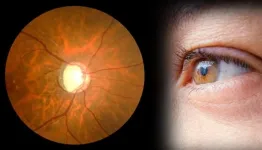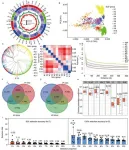(Press-News.org) A new study by investigators from Mass General Brigham uncovers how a novel immunotherapy prevents squamous cell carcinoma, with benefits lasting five years after treatment. This therapy is the first to activate specific components of the adaptive immune system, particularly CD4+ T helper cells, which are not known to be involved in traditional cancer treatments. This work highlights the potential for similar immunotherapies to prevent other cancers throughout the body. Results are published in the Journal of Clinical Investigation.
“One of the unique challenges with squamous cell carcinoma is that individuals who develop it are at an increased risk of developing multiple new lesions over time. This makes prevention an essential part of care,” said corresponding author Shawn Demehri, MD, PhD, of the Department of Dermatology and the Krantz Family Center for Cancer Research at Massachusetts General Hospital, a founding member of the Mass General Brigham healthcare system. “We found that this drug combination prevents cancer through a mechanism distinct from those used by current immunotherapies, suggesting that these drugs may treat and prevent cancer via distinct mechanisms.”
Cancer research is a foundational pillar in the care provided to patients at Mass General Brigham. Research, along with the power of the system’s strengths in innovation, education, and community engagement, will allow Mass General Brigham Cancer to deliver integrated cancer care for all, putting health equity at the center of that support. The vision is to provide a comprehensive, integrated and research-informed approach to cancer care, helping patients navigate their entire journey of care, from prevention and early detection to treatment and survivorship.
Squamous cell carcinoma (SCC) is the second most common type of skin cancer. Precancerous spots, often caused by sun damage, signal an increased risk of SCC, but removing individual spots does not notably reduce the likelihood of developing this cancer. Recently, researchers found that using a vitamin D analog (calcipotriol) combined with chemotherapy (5-FU) can eliminate precancerous spots and prevent cancer occurrence via activating the patient’s own immune system; yet, prior to this trial, the mechanism remained unclear.
Demehri’s team conducted an open-label clinical trial to investigate the mechanism of calcipotriol plus 5-FU immunotherapy. Eighteen patients with qualifying precancerous skin lesions were enrolled. Participants applied a treatment of 0.0025% calcipotriol and 2.5% 5-FU to affected areas—including the face, scalp, and upper extremities—twice daily for six days. They were evaluated in the clinic and underwent skin biopsies before treatment, one day after completing the regimen, and again eight weeks post-treatment.
The treatment successfully eliminated 95 percent of precancerous spots on the face and removed all facial lesions in 7-of-10 patients. The therapy cleared 82 percent of spots on the scalp and 65 and 68 percent on the right and left upper extremities, respectively. Side effects included some redness and inflammation around spots that the drug eliminated, but all skin reactions resolved within four weeks of treatment. Notably, healthy skin appeared unaffected by this immune response to the drug.
Researchers studied skin biopsies under the microscope to understand the drug’s mechanism, finding high CD4+ T cell activity at sites where precancerous lesions were removed. They evaluated the drug’s long-term success by continuing to collect skin biopsies from participants over five years after the trial, finding that the immunotherapy’s effects persisted.
To better understand the drug’s mechanism, Demehri’s lab created a mouse model, inducing tumor development before treating the mice with the trial immunotherapy. They found that the treatment significantly delayed tumor onset and reduced tumor counts, and that these effects appeared dependent on CD4+ T cell activity.
This study focused on evaluating the long-term efficacy and mode of action of this immunotherapy in patients with competent immune systems. Demehri is currently working on a multi-center clinical trial to evaluate whether immunocompromised individuals, such as organ transplant recipients at higher risk for skin cancer, would experience similar benefits. Demehri and colleagues are also exploring how the mechanism identified in this trial could be employed by other immunotherapies to prevent additional forms of cancer, such as oral, breast, or anal cancer.
“This trial demonstrates that immunology can be a powerful force in cancer prevention, much like it transformed cancer treatment over the last decade,” said Demehri.
Authorship: In addition to Demehri, Mass General Brigham authors include Tomonori Oka, Sabrina S. Smith, Heehwa G. Son, Truelian Lee, Valeria S. Oliver-Garcia, Mahsa Mortaja, Kathryn E. Trerice, Lily S. Isakoff, Danielle N. Conrad, Marjan Azin. Additional authors include Neel S. Raval, Mary Tabacchi, Luni Emdad, Swadesh K. Das, Paul B. Fisher and Lynn A. Cornelius.
Disclosures: Cornelius and Demehri are coinventors on a filed patent for the use of calcipotriol plus 5-fluorouracil for the treatment of precancerous skin lesions (PCT/US2015/049434). Fisher is a co-founder, president, CEO, and holds equity interest in InterLeukin Combinatorial Therapies (ILCT). Virginia Commonwealth University also has equity interest in ILCT. Emedad was the PI of a sponsored research agreement with ILCT, which was managed by Virginia Commonwealth University. Other authors declare no competing financial interests.
Funding: Support from NIH-NIAMS R01 AR076013, Burroughs Wellcome Fund, and LEO Foundation.
Paper cited: Demehri, S. et al. “T helper 2 cell-directed immunotherapy eliminates pre-cancerous skin lesions” Journal DOI: 10.1172/JCI183274
###
About Mass General Brigham
Mass General Brigham is an integrated academic health care system, uniting great minds to solve the hardest problems in medicine for our communities and the world. Mass General Brigham connects a full continuum of care across a system of academic medical centers, community and specialty hospitals, a health insurance plan, physician networks, community health centers, home care, and long-term care services. Mass General Brigham is a nonprofit organization committed to patient care, research, teaching, and service to the community. In addition, Mass General Brigham is one of the nation’s leading biomedical research organizations with several Harvard Medical School teaching hospitals. For more information, please visit massgeneralbrigham.org.
END
Cancer-preventing topical immunotherapy trains the immune system to fight precancers
Clinical trial results detail how topical calcipotriol plus 5-fluorouracil (5-FU) leverages the adaptive immune system to eliminate precancerous lesions and prevent skin cancer
2025-01-02
ELSE PRESS RELEASES FROM THIS DATE:
Blood test can predict how long vaccine immunity will last, Stanford Medicine-led study shows
2025-01-02
When children receive their second measles-mumps-rubella vaccine, around the time they start kindergarten, they gain protection against all three viruses for all or most of their lives. Yet the effectiveness of an influenza vaccine given in October starts to wane by the following spring.
Scientists have long been stymied by why some vaccines can coax the body to produce antibodies for decades, while others last mere months. Now, a study led by researchers at Stanford Medicine has shown that variation in vaccine durability can, in part, be pinned on a surprising type ...
The nose knows: Nasal swab detects asthma type in kids
2025-01-02
Researchers at the University of Pittsburgh have developed a nasal swab test for kids that diagnoses specific asthma subtype, or endotype. This non-invasive approach could help clinicians prescribe medications more precisely and pave the way for research toward better treatments for lesser-studied asthma types, which have been difficult to diagnose accurately until now.
Published today in JAMA, the findings are based on data from three independent U.S.-based studies that focused on Puerto Rican and African American youths, who have higher rates of asthma and are more likely to die from the disease than their non-Hispanic white counterparts.
“Asthma ...
Knowledge and worry following review of standard vs patient-centered pathology reports
2025-01-02
About The Study: Most study participants could not extract basic information—including whether they have cancer—from standard prostate cancer pathology reports but were able to understand this diagnostic information from the patient-centered pathology reports (PCPRs). Also, they discriminated between risk levels (i.e., lower levels of perceived worry in the low-risk condition) with PCPRs compared with standard reports. Hospital systems should consider including PCPRs with standard pathology reports to improve patient understanding.
Corresponding ...
Cardiovascular disease and breast cancer stage at diagnosis
2025-01-02
About The Study: This case-control study found that individuals with more advanced breast cancer at diagnosis were more likely to have prevalent cardiovascular disease. This finding may be specific to hormone receptor–positive and ERBB2-negative (formerly HER2) disease. Future studies are needed to confirm these findings and investigate interventions to improve patient outcomes, including personalized cancer screening.
Corresponding Author: To contact the corresponding author, Kevin T. Nead, MD, MPhil, email ktnead@mdanderson.org.
To access the embargoed study: Visit our For The Media website at this link https://media.jamanetwork.com/
(doi:10.1001/jamanetworkopen.2024.52890)
Editor’s ...
Herpes virus might drive Alzheimer's pathology, study suggests
2025-01-02
PITTSBURGH, Jan. 2, 2025 – University of Pittsburgh researchers uncovered a surprising link between Alzheimer’s disease and herpes simplex virus-1 (HSV-1), suggesting that viral infections may play a role in the disease. The study results are published today in Cell Reports.
The study also revealed how tau protein, often viewed as harmful in Alzheimer’s, might initially protect the brain from the virus but contribute to brain damage later. These findings could lead to new treatments targeting infections and the brain’s immune response.
“Our study challenges ...
Patients with heart disease may be at increased risk for advanced breast cancer
2025-01-02
HOUSTON ― Cardiovascular disease (CVD) and cancer are the two leading causes of death in the U.S. According to researchers from The University of Texas MD Anderson Cancer Center, patients diagnosed with late-stage or metastatic breast cancer have a statistically significant increased risk of pre-diagnosis CVD compared to those with early-stage cancer at diagnosis.
The study, published today in JAMA Network Open, found those with advanced breast cancer at diagnosis were 10% more likely to have had pre-existing ...
Chinese Medical Journal study reveals potential use of artificial intelligence (AI) in finding new glaucoma drugs
2025-01-02
Glaucoma is a progressive eye disorder characterized by fluid buildup inside the eye, causing ocular hypertension. By 2040, it is estimated that 111.8 million people worldwide will be affected by glaucoma, potentially leading to blindness if left untreated. Currently, there are treatments available to manage ocular hypertension, but a cure for glaucoma remains elusive.
Retinal ganglion cells (RGCs) are crucial for transmitting visual signals from the eyes to the brain, and their degeneration leads to optic nerve damage, which is a hallmark of glaucoma. In recent years, scientists ...
Genomic analysis of modern maize inbred lines reveals diversity and selective breeding effects
2025-01-02
Maize is a globally cultivated staple crop and one of the most successful examples of heterosis utilization in food production. The development of elite inbred lines is critical for breeding hybrid varieties and achieving sustained yield improvements. However, efficient breeding of inbred lines faces significant challenges, including the broad origins of germplasm resources, complex and diverse genetic structures, and low accuracy in phenotypic prediction. Advances in modern genomics and artificial intelligence technologies ...
Research alert: Enzyme promoting tumor growth and spread in pancreatic cancer identified
2025-01-02
Pancreatic cancer kills 50,000 people each year, according to the National Cancer Institute, and there are few effective treatment options for the disease. In a new study, researchers at University of California San Diego School of Medicine have discovered that an enzyme called MICAL2 promotes tumor growth and spread in pancreatic ductal adenocarcinomas (PDAC), the most common form of pancreatic cancer. The study will be published on January 2, 2025 in Cancer Research, a journal of the American Association for Cancer Research.
Normally, MICAL2 plays an important role in cell migration and morphology. But when the researchers measured ...
NIH officials assess threat of H5N1
2025-01-02
WHAT:
Highly pathogenic H5N1 avian influenza A virus (HPAI H5N1) remains a low risk to the general public, and public health experts in the United States believe that available treatments and vaccines, as well as those in development, are sufficient to prevent severe disease. However, the National Institutes of Health (NIH) and its federal partners remain focused on monitoring the virus and evaluating changes, according to leading officials at the National Institute of Allergy and Infectious Diseases (NIAID), part of the NIH.
In a commentary published in the New England Journal of Medicine, NIAID Director Jeanne M. Marrazzo, M.D., M.P.H., and Michael G. Ison, M.D., M.S., chief ...
LAST 30 PRESS RELEASES:
Family relationships identified in Stone Age graves on Gotland
Effectiveness of exercise to ease osteoarthritis symptoms likely minimal and transient
Cost of copper must rise double to meet basic copper needs
A gel for wounds that won’t heal
Iron, carbon, and the art of toxic cleanup
Organic soil amendments work together to help sandy soils hold water longer, study finds
Hidden carbon in mangrove soils may play a larger role in climate regulation than previously thought
Weight-loss wonder pills prompt scrutiny of key ingredient
Nonprofit leader Diane Dodge to receive 2026 Penn Nursing Renfield Foundation Award for Global Women’s Health
Maternal smoking during pregnancy may be linked to higher blood pressure in children, NIH study finds
New Lund model aims to shorten the path to life-saving cell and gene therapies
Researchers create ultra-stretchable, liquid-repellent materials via laser ablation
Combining AI with OCT shows potential for detecting lipid-rich plaques in coronary arteries
SeaCast revolutionizes Mediterranean Sea forecasting with AI-powered speed and accuracy
JMIR Publications’ JMIR Bioinformatics and Biotechnology invites submissions on Bridging Data, AI, and Innovation to Transform Health
Honey bees navigate more precisely than previously thought
Air pollution may directly contribute to Alzheimer’s disease
Study finds early imaging after pediatric UTIs may do more harm than good
UC San Diego Health joins national research for maternal-fetal care
New biomarker predicts chemotherapy response in triple-negative breast cancer
Treatment algorithms featured in Brain Trauma Foundation’s update of guidelines for care of patients with penetrating traumatic brain injury
Over 40% of musicians experience tinnitus; hearing loss and hyperacusis also significantly elevated
Artificial intelligence predicts colorectal cancer risk in ulcerative colitis patients
Mayo Clinic installs first magnetic nanoparticle hyperthermia system for cancer research in the US
Calibr-Skaggs and Kainomyx launch collaboration to pioneer novel malaria treatments
JAX-NYSCF Collaborative and GSK announce collaboration to advance translational models for neurodegenerative disease research
Classifying pediatric brain tumors by liquid biopsy using artificial intelligence
Insilico Medicine initiates AI driven collaboration with leading global cancer center to identify novel targets for gastroesophageal cancers
Immunotherapy plus chemotherapy before surgery shows promise for pancreatic cancer
A “smart fluid” you can reconfigure with temperature
[Press-News.org] Cancer-preventing topical immunotherapy trains the immune system to fight precancersClinical trial results detail how topical calcipotriol plus 5-fluorouracil (5-FU) leverages the adaptive immune system to eliminate precancerous lesions and prevent skin cancer





